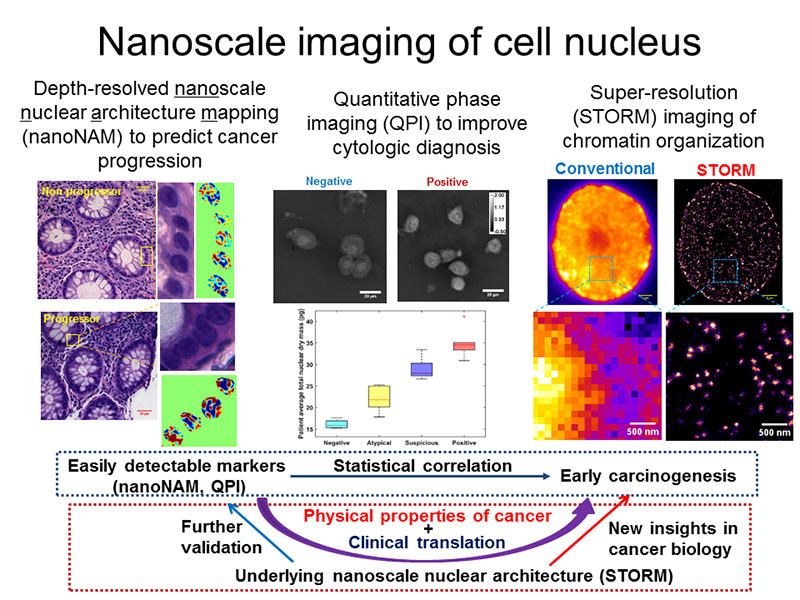Yang Liu, PhD

Associate Professor, Gastroenterology, Hepatology and Nutrition
5117 Centre Ave
Hillman Cancer Center 2.32
Pittsburgh, PA 15232
Email: liuy@pitt.edu
THE THREE MOST SIGNIFICANT QUESTIONS THAT DEFINE YOUR RESEARCH PROGRAM:
Can we map 3D sub-cellular architecture at a nanoscale resolution (~10-20nm) with a high throughput in human tissue?
Does the genome-wide high-order nuclear architecture at nanoscale provide earlier and more accurate prediction of cancer progression and risk?
Can we develop clinically applicable instrument to interrogate nanoscale nuclear architecture with a high throughput to better inform the clinical decision-making for better cancer risk prediction?
FIVE KEYWORDS THAT DESCRIBE YOUR AREAS OF INTEREST:
Development of optical coherence phase microscopy for nanoscale nuclear architecture mapping
Development of high-throughput 3D super-resolution fluorescence nanoscopy and single-molecule localization microscopy for imaging thick tissue
Early cancer detection and risk prediction of pre-malignant lesions
Imaging nanoscale chromatin organization, genome architecture and epigenetics in cancer and neurodegenerative diseases
Quantitative phase imaging to improve cytologic diagnosis
TECHNIQUES, MODELS, METHODS, ANALYTIC APPROACHES, ETC:
Super-resolution stochastic optical reconstruction microscopy (STORM) imaging system, image reconstruction software and clustering analysis software for imaging fluorescently-labeled proteins at a resolution of ~20-30 nm in cells and tissue section
White-light high-resolution optical coherence phase microscopy (a version of optical coherence tomography (OCT)) imaging system and image analysis software for high-throughput nanoscale nuclear architecture mapping on clinically prepared formalin-fixed, paraffin-embedded tissue (FFPE)
Quantitative diffraction phase microscopy system (quantitative version of phase contrast microscopy) for label-free imaging unstained cells and tissue

